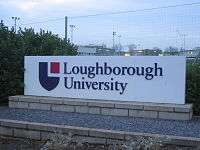Loughborough University
Coordinates: 52°46′6″N 1°13′43″W / 52.76833°N 1.22861°W
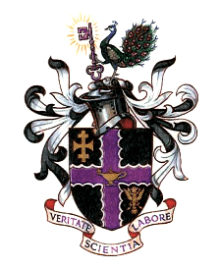 Coat of arms of the Loughborough University | |||||||||||||||||||||
| Motto | Veritate, Scientia, Labore (Latin) | ||||||||||||||||||||
|---|---|---|---|---|---|---|---|---|---|---|---|---|---|---|---|---|---|---|---|---|---|
Motto in English | by Truth, Wisdom and Labour | ||||||||||||||||||||
| Type | Public | ||||||||||||||||||||
| Established |
1909 – Loughborough Technical Institute 1966 – Loughborough University of Technology established by Royal Charter[1][2] | ||||||||||||||||||||
| Endowment | £1.7 million (as of 31 July 2017)[3] | ||||||||||||||||||||
| Budget | £293.7 million (2016-17)[3] | ||||||||||||||||||||
| Chancellor | Lord Sebastian Coe | ||||||||||||||||||||
| Vice-Chancellor | Robert Allison | ||||||||||||||||||||
| Visitor | Paul Michell[4] | ||||||||||||||||||||
Administrative staff | 2,915 | ||||||||||||||||||||
| Students | 17,130 (2016/17)[5] | ||||||||||||||||||||
| Undergraduates | 12,930 (2016/17)[5] | ||||||||||||||||||||
| Postgraduates | 4,195 (2016/17)[5] | ||||||||||||||||||||
Other students | 1,205 FE[6] | ||||||||||||||||||||
| Location | Loughborough, United Kingdom | ||||||||||||||||||||
| Campus | Suburban, single-site campus (437 acres) | ||||||||||||||||||||
| Colours |
| ||||||||||||||||||||
| Nickname | Lufbra, Lboro | ||||||||||||||||||||
| Affiliations | Universities UK, Wallace Group, AMBA, EUA, ACU, EMUA, EQUIS, ESRC, SEFI | ||||||||||||||||||||
| Website |
lboro | ||||||||||||||||||||
 | |||||||||||||||||||||
Loughborough University (abbreviated as Lough for post-nominals)[7] is a public research university in the market town of Loughborough, Leicestershire, in the East Midlands of England. It has been a university since 1966, but the institution dates back to 1909, when the then Loughborough Technical Institute began with a focus on skills and knowledge which would be directly applicable in the wider world. In March 2013, the university announced it had acquired the former broadcast centre at the Queen Elizabeth Olympic Park which opened as a second campus in 2015. It was a member of the 1994 Group until the group was dissolved in November 2013. The annual income of the institution for 2016–17 was £293.7 million of which £43.3 million was from research grants and contracts, with an expenditure of £272.1 million.[3]
Loughborough ranks particularly highly for engineering and technology[8] and is noted for its sports-related courses and achievements.[9] In 2013, the university won its seventh Queen's Anniversary Prize, awarded in recognition of its impact through research and skills development in High Value Manufacturing to create economic growth.[10] The university is also rated five star for excellence by Quacquarelli Symonds through QS Star Scheme.[11]
History
Origins
The university traces its roots back to 1909 when a Technical Institute was founded in the town centre. There followed a period of rapid expansion during which the institute was renamed Loughborough College and the development of the present campus began.
In the early years, efforts were made to mimic the environment of an Oxbridge college (e.g. requiring students to wear gowns to lectures) whilst maintaining a strong practical counterbalance to academic learning. During World War I, the institute served as an "instructional factory", training workers for the munitions industry.[12]
The Loughborough colleges
Following the war, the institute fragmented into four separate colleges:
- Loughborough Training College (teacher training)
- Loughborough College of Art (art and design)
- Loughborough College of Further Education (technical and vocational)
- Loughborough College of Technology (technology and science)
The last was to become the nucleus of the present university. Its rapid expansion from a small provincial college to the first British technical university was due largely to the efforts of its principals, Herbert Schofield who led it from 1915 to 1950 and Herbert Haslegrave who oversaw its further expansion from 1953 to 1967, and steered its progress first to a College of Advanced Technology and then a university.[13] In 1966, the College of Advanced Technology as it had then become, received university status. In 1977, the university broadened its range of studies by amalgamating with Loughborough College of Education (formerly the Training College). More recently, in August 1998, the university merged with Loughborough College of Art and Design (LCAD). Loughborough College is still a college of further education.
The influence of Herbert Schofield
Schofield became principal in 1915 and continued to lead the College of Technology until 1950. Over his years as principal, the College changed almost beyond recognition. He purchased the estate of Burleigh Hall on the western outskirts of the town, which became the nucleus of the present 438-acre (1.77 km2) campus. He also oversaw the building of the original Hazlerigg and Rutland halls of residence, which are now home to the university's administration and the Vice-Chancellor's offices.
From college to university
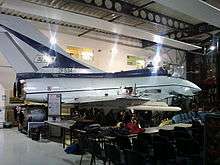
An experienced educationist, Herbert Haslegrave took over as college principal in 1953, and by both increasing the breadths and raising standards, gained it the status of Colleges of Advanced Technology in 1958. He further persuaded the Department of Education to buy further land and began a building programme.[13] In 1963, the Robbins Report on higher education recommended that all colleges of advanced technology should be given the status of universities. Consequently, Loughborough College of Technology was granted a Royal Charter on 19 April 1966 and became Loughborough University of Technology (LUT), with Haslegrave as its first vice-chancellor.[12]
It gradually remodelled itself in the image of the plate glass universities of the period, which had also been created under Robbins.
Later history
In 1977, Loughborough Training College (now renamed Loughborough College of Education) was absorbed into the university. The Arts College was also amalgamated with the university in 1998. These additions have diluted the technological flavour of the institution, causing it to resemble more a traditional university with its mix of humanities, arts and sciences. Consequently, in 1996, the university dropped the "of Technology" from its title, becoming "Loughborough University".[12]
The shortened name "Lufbra" is commonly used by the students' union,[14] the alumni association[15] and others.
Campus
The university's main campus is in the Leicestershire town of Loughborough. The Loughborough campus (once the estate of Burleigh Hall) covers an area of 438 acres (1.77 km2), and includes academic departments, halls of residence, the Students' Union, two gyms, gardens and playing fields.
Of particular interest are the walled garden, the "garden of remembrance", the Hazlerigg-Rutland Hall fountain-courtyard and the Bastard Gates.
In the central quadrangle of the campus stands a famous cedar, which has often appeared as a symbol for the university. Unfortunately a heavy snowfall in December 1990 led to the collapse of the upper canopy which gave the tree its distinctive shape.
Library
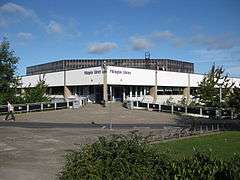
The Pilkington Library opened in 1980. It covers 9,161 square metres over four floors with 1375 study places (up from 780 prior to the renovation in late 2013). The Library has a history of undertaking research in the field of library and information work. There is an open access area where students are allowed to take in cold food and drinks as well as to engage in group discussions.
Loughborough University London
Loughborough University London is based on the Queen Elizabeth Olympic Park, which covers 560 acres, with 6.5 km of waterways and 4,300 new trees. The campus is within close reach of major transport links and teaches postgraduate degrees only, teaching a wide range of master's degrees offered by the university. It also has a thriving doctoral research community.
Burleigh Court Conference Centre and Hotel
Burleigh Court Conference Centre and Hotel [16] is a four-star hotel and conference centre on campus that has 225 bedrooms and incorporates Burleigh Springs Leisure and Therapy Centre, a spa and leisure facility.
Holywell Park Conference Centre
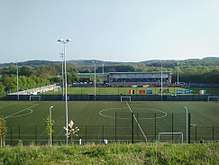
Holywell Park Conference Centre [17] is a conference and meeting venue located on campus. It was used as the kitting out location for Team GB [18] prior to the 2012 Summer Olympics.
Elite Athlete Centre and Hotel
Elite Athlete Centre and Hotel [19] is a training base and hotel for elite athletes opening in November 2018.[20]
University Stadium
The £4 million[21] stadium for the university's rugby and football first teams was opened in 2012 and has a capacity of 3,000.[22] It is home to Loughborough University F.C. who are one of the few university sides to play in the English football league system, currently competing in the Midland Football League.[23] The stadium has many features not normally found at that level of football including a digital scoreboard, conference facilities and 14 changing rooms. In 2018 it hosted four matches in the group stages of the European Under-17 Championships.[24]
Academic profile
The University has 20 academic departments and over 100 research groups, institutes and centres divided between ten schools since the university's new school structure was implemented for the academic year 2011/12. Previous to this, the departments and research institutes were split between three faculties: Science, Engineering and Social Science & Humanities.
It has 17,130 students; 12,930 of whom are undergraduates and 4,195 are pursuing postgraduate courses and/or research (based on 2016/17 figures).[5] Its current Chancellor is Lord Sebastian Coe, (the previous chancellor, Sir Nigel Rudd retired from the position in summer 2015, having served for five years), and its Vice-Chancellor is Robert Allison.
The university has won seven Queen's Anniversary Prizes for Higher and Further Education for work with the aeronautical and automotive industries (1994); support for developing countries (1998); for a pioneering role in developing applications of modern optics and laser technologies (2000); for its world leading roles in sports research, education and development (2002); for its world leading role in social policy in recognition of its outstanding and widely respected work in evaluating and helping develop social policy-related programmes, such as those for cared for children, social security policy, crime prevention, education initiatives and young carers (2005); for recognition of its vehicle, road and driver safety research (2007); and for its impact through research and skills development in High Value Manufacturing to create economic growth (2013).[25]
The university has the largest sports scholarship programme in the UK with currently over 250 international athletes studying and training.
Admissions
| 2017 | 2016 | 2015 | 2014 | 2013 | |
|---|---|---|---|---|---|
| Applications[26] | 31,215 | 29,390 | 25,225 | 24,470 | 21,920 |
| Offer Rate (%)[27] | 77.9 | 79.3 | 81.8 | 83.7 | 85.7 |
| Enrols[28] | 3,980 | 3,945 | 4,050 | 3,530 | 4,125 |
| Yield (%) | 16.4 | 16.9 | 19.6 | 17.2 | 22.0 |
| Applicant/Enrolled Ratio | 7.84 | 7.45 | 6.23 | 6.93 | 5.31 |
| Average Entry Tariff[29][lower-alpha 1] | n/a | 162 | 400 | 410 | 397 |
In terms of average UCAS points of entrants, Loughborough ranked 30th in Britain in 2014.[30] According to the 2017 Times and Sunday Times Good University Guide, approximately 17% of Loughborough's undergraduates come from independent schools.[31] In the 2016-17 academic year, the university had a domicile breakdown of 79:5:16 of UK:EU:non-EU students respectively with a female to male ratio of 39:61.[32]
Rankings and reputation
Global rankings | ||
| ARWU[33] (2018) | 701–800 | |
|---|---|---|
| CWTS Leiden[34] (2018) | 228 | |
| QS[35] (2019) | 218= | |
| THE[36] (2019) | 401-500 | |
| Complete[29] (2019) |
7 | |
| The Guardian[37] (2019) |
4 | |
| Times / Sunday Times[38] (2019) |
5 | |
British Government assessment | ||
| Teaching Excellence Framework[39] | Gold | |
Loughborough was named University of the Year 2019 in The Times and Sunday Times University Good University Guide [40]. Loughborough is the only university to have won the title twice. Loughborough also moved up to 5th overall in the Good University Guide [41]. Loughborough was also given the title of University of the year at the Whatuni Student Choice Awards 2018 [42].
In 2018 Loughborough named best in the UK for student experience in the Times Higher Education Student Experience Survey for the fifth time since 2009[43].
Loughborough University was ranked 4th in the 2019 Guardian University League table [44].
Loughborough kept its position as the best university in the world to study sports-related subjects in the global 2018 QS higher education league table [45]. In 2017 Loughborough acheived a five star plus rating in the QS Stars University Ratings [46].
.jpg)
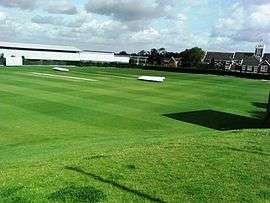
The Centre for Renewable Energy Systems Technology, or CREST, runs the internationally recognised masters programme in renewable energy. The Department of Politics, History and International Relations, or PHIR as it is commonly known, is home to a number of world class experts in the area of European politics and international relations, including Michael H. Smith. The Centre for Research in Social Policy is an independent research centre based within the Department of Social Sciences. It is responsible for calculating the Minimum Income Standard in the United Kingdom for the Joseph Rowntree Foundation.
ECB National Academy which is also known as the National Cricket Performance Centre has been based at Loughborough since 2003. It provides world top-class indoor and outdoor training facilities for cricketers.
Loughborough is renowned in the UK for its sports provisions.[47] Loughborough is home to the world's largest university-based sports technology research group, which is part of the internationally acclaimed Sports Technology Institute. SportPark, based at the university provides a state-of-the-art home for national sporting bodies including Youth Sport Trust, British Swimming and several other national governing bodies. Loughborough Students have performed exceedingly well in the BUCS Overall Championship for more than thirty years, winning the overall trophy for 37 successive years.
Loughborough was chosen by the British Olympic Association as the training base and official Preparation Camp for Team GB in the run-up to the London 2012 Games. Students and graduates of Loughborough won four bronze medals and six Paralympic medals (including one gold and three silver) in the 2012 Summer Olympics.
At the Commonwealth Games Glasgow 2014, over 120 athletes from Loughborough represented 8 teams, across 10 sports. In total, 35 medals were won by athletes with Loughborough connections; 13 bronze, 13 silver and nine gold medals. If Loughborough was a country, the university would have finished 11th on the medal table at the 2014 Games.
In 2016 over 80 students, graduates and Loughborough-linked athletes travelled to Rio to participate in both the Olympic and Paralympic Games. In the Olympic competition our athletes secured 12 medals, including 5 golds, meaning if Loughborough University was a country we would have finished 17th on the medal table. Loughborough-linked coaches also played a key role in the Games, with alumni guiding Team GB, Canada and Fiji to gold medals. During the Paralympic competition Loughborough-linked athletes secured a further 22 medals, meaning if Loughborough was competing as a nation it would have finished 10th in the Paralympics medal table.
Organisation
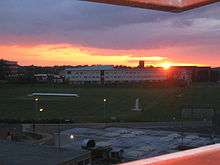
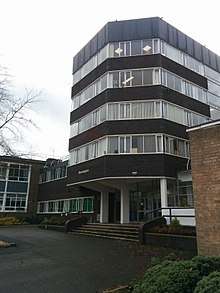
Loughborough is headed by a Vice-Chancellor, Robert Allison. The university is organised into ten schools:
- School of Aeronautical, Automotive, Chemical and Materials Engineering (comprising the departments of Aeronautical and Automotive Engineering, Chemical Engineering and Materials)
- School of Business and Economics
- School of Architecture, Building and Civil Engineering
- Loughborough Design School
- Wolfson School of Mechanical, Electrical and Manufacturing Engineering
- School of Science (comprising the departments of Chemistry, Computer Science, Physics and the Mathematical Sciences)
- School of Social, Political and Geographical Sciences (comprising the departments of Geography, PHIR and Social Sciences)
- School of Sport, Exercise and Health Sciences
- School of the Arts, English and Drama (comprising the School of the Arts and the Department of English & Drama)
- Loughborough University London (comprising the Institute for Design Innovation, Institute for Digital Technologies, Academy of Diplomacy and International Governance, Glendonbrook Institute for Enterprise Development, Institute for International Management, Institute for Media and Creative Industries, Institute for Sport Business)
Each of these 10 schools has a senior management team (School SMTs) consisting of Deans, Associate Deans for Teaching, Research and Enterprise, and Operations Managers. With this change of organisation within the university the new Academic Leadership Team (ALT), made up of the Vice-Chancellor, Deputy Vice-Chancellor, Chief Operating Officer, Director of Finance, the Pro Vice-Chancellors for Research, Teaching and Enterprise, and the 10 new Deans, replaced the previous Executive Leadership Team (ELT).
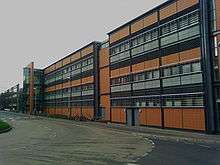
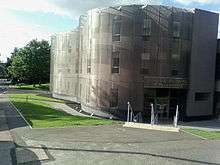
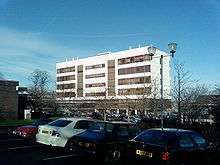
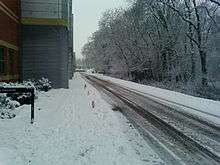
Traditions
The official colour of the university is African Violet, with students taking part in practical sessions on Sport & Exercise Science courses having to wear the school kit in this colour. The coat of arms incorporates several symbols relevant to the history of the Loughborough area, including Offa of Mercia's cross (a symbol of the ancient kingdom of Mercia, within whose borders the town now stands) and the peafowl from the arms of the Dukes of Rutland. The motto of the university is veritate scientia labore ("with truth, wisdom and labour", or, alternatively, "with truth, knowledge and work", depending on the translation).
The university has a strong tradition in both engineering and sport. From its strong engineering and technical background it has now expanded, becoming a centre of excellence in the field of sports and sports science. It has graduated a number of world-class athletes including Paula Radcliffe and Lord Coe. In keeping with this tradition, Loughborough students have won the British Universities & Colleges Sport Association (BUCS) championship every year for over three decades. The university is the home of the England and Wales Cricket Board's National Academy, opened in November 2003.
The phonetic spelling "Lufbra" is sometimes used amongst students, graduates, and in Students' Union publications, and the name is also often abbreviated to "lboro" both casually as well as within more formal/academic circles, stemmed from the university's URL of "www.lboro.ac.uk".
There is a one-week break between semester one and semester two. Normally little to no exams are scheduled in this week therefore students are presented with a week free from studies. This week is referred to as Refreshers Week by most students.
Student life
Students' Union
The Union building sits in the north-eastern corner of the campus, and offers a range of facilities for clubs and societies, retail, entertainment and other activities. The Union has five rooms, each with its own theme. Loughborough Students' Union (LSU), was awarded the International Experience Award 2011 by the National Union of Students (NUS).
As well as representing the student body through Union Council and offering academic support through Loughborough Students' Voice, the Union has five main sections for students to get involved with.; the athletic union offers 56 different sporting clubs, the Societies Federation consists of over 80 societies, Action is the volunteering section offering a range of opportunities for students. There are 45 regular projects working with young people, the elderly, special needs, the homeless or the environment.
Loughborough Students' Rag is a student fundraising organisation. For the last eight years they have raised over £1M per year for local, national and international charities. The total raised since records began is now over £16M
Loughborough has its own media centre which offers the opportunity to make TV shows with LSUTV, have your own radio show with LCR, write for the student magazine Label or improve your photography with Lens.[48] The School of the Arts, English and Drama runs The Lamplight Press, the UK's first student-led publishing company.

Student halls
As of 2016, there are a total of 17 halls of residence, many of which are named after famous scientists and engineers.[49] The halls are as follows:
| Name | Location | Open to | Catering status |
|---|---|---|---|
| Robert Bakewell | Village Park | Undergraduates only | Self-catering |
| Butler Court (with A Block) | East Park | Undergraduates only | Self-catering |
| Cayley | Village Park | Undergraduates only | Catered |
| David Collett | West Park | Undergraduates only | Catered |
| Falkner–Eggington | Central Park | Undergraduates and postgraduates | Self-catering |
| Faraday | Village Park | Undergraduates only | Catered |
| Forest Court | Off campus | Postgraduates only | Self-catering |
| Harry French Historic Hall | Off campus | Undergraduates and postgraduates | Self-catering |
| Hazlerigg–Rutland | Village Park | Undergraduates only | Self-catering |
| The Holt | Off Campus | Undergraduates only | Self-catering |
| William Morris | Off campus | Undergraduates only | Self-catering |
| John Phillips | Village Park | Postgraduates only | Self-catering |
| Elvyn Richards | Village Park | Undergraduates only | Catered |
| Royce | Village Park | Undergraduates only | Catered |
| Rutherford | Village Park | Undergraduates only | Catered |
| Telford | Village Park | Undergraduates only | Self-catering |
| Towers | East Park | Undergraduates only | Catered |
Of these, Hazlerigg–Rutland, John Phillips, Elvyn Richards and Telford have names that were previously used for halls of residence that have since been repurposed, renamed or merged with other halls. In 2015 Loughborough University ranked 1st in the UK for accommodation on a University review platform StudentCrowd.[50]
- Butler Court Hall
- Cayley Hall
- David Collett Hall
- Elvyn Richards Hall
- Hazlerigg-Rutland Hall
- John Phillips Hall
- Robert Bakewell Hall
- Royce Hall
- Rutherford Hall
- Faraday Hall
- Whitworth Tower, now part of Rutherford Hall
Fitness facilities
Loughborough university has two main gyms namely; Powerbase and Hollywell.
University leadership
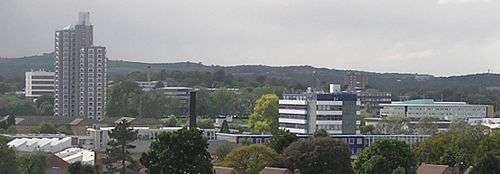
Chairmen of Governors
- A. A. Bumpus (1909–1925)
- B. B. Barrow (1925–1934)
- William Bastard (1934–1936)
- W. H. Wright (1936–1940)
- Sir Robert Martin (1940–1952)
- Sir Harold West (1952–1957)
- Sir Edward Herbert (1957–1963)
- Sir Herbert Manzoni (1963–1966)
- Sir B. R. Dean (1992–2015)
Chancellors
- Lord Pilkington (1966–1980)[51]
- Sir Arnold Hall (1980–1989)
- Sir Denis Rooke (1989–2003)
- Sir John Jennings (2003–2010)
- Sir Nigel Rudd (2010–2016)
- Lord Sebastian Coe (2017–)
Principals
- S. C. Laws (1909–1915)
- Herbert Schofield (1915–1950)
- Major-General W. F. Hasted (1951–1952)
- H. E. Falkner, J. W. Bridgeman and C. D. Bentley (interim 'triumvirate' January–September 1952)
- Wing Commander H. E. Falkner (1952–1953) (acting)
- Herbert Haslegrave (1953–1966)
Vice-Chancellors
- Herbert Haslegrave (1966–1967)
- Elfyn J. Richards (1967–1975)
- Sir Clifford Butler (1975–1985)
- John G. Phillips (1986–1987)
- Sir David Davies (1988–1993)
- Sir David Wallace (1994–2005)
- Shirley Pearce (2006–2012)
- Robert Allison (2012–)
Notable alumni
- Derek Abbott – physicist and electronic engineer
- Adnan al-Janabi – Iraq former minister without portfolio
- Steve Backley– javelin thrower
- Daniel Bennett – Singaporean footballer
- Sir Peter Bonfield – former chief executive of ICL and BT Group
- Robbie Brightwell – athlete, European 440 yards champion 1962
- Victoria Clarke, psychologist
- Sebastian Coe – Olympic athlete, politician and later Chairman of the London Organising Committee for the Olympic Games
- David Collier – cricket administrator and businessman, chief executive of the England and Wales Cricket Board (ECB)
- John Cooper – Olympic silver medallist at 440 yards hurdles in Tokyo 1964, died in the Paris air disaster 1974
- Fran Cotton – rugby footballer
- Robin Daniels – engineer and entrepreneur. Board advisor and technology investor.
- James Dasaolu – athletics sprinter[52]
- Gerald Davies – Wales and British Lion rugby union player, Times journalist, and manager of the British and Irish Lions in South Africa 2009
- John Dawes – Wales and British Lions rugby player, captained the British Lions in South Africa 1971
- Tobias Ellwood – Conservative MP
- Ozak Esu – Electronic engineer
- Diane Farr – Numb3rs actress
- Lorna Fitzsimmons – former NUS President and Labour Party MP
- James Gibson – swimmer
- Rosalind Gill – Professor of Social and Cultural Analysis, King's College, London.
- Lisa Goldman – theatre director and writer
- Tanni Grey-Thompson – athlete
- Steve Hallam – Formula 1 engineer, head of the race team for the McLaren Mercedes Team
- Emma Hatton - Actress, lead role in Wicked 2016
- Liam Hennessy – renowned exercise physiologist, strength and conditioning coach, and former international athlete.
- Johnnie Johnson – leading Spitfire ace of World War II, when it was Loughborough College
- Ben Kay – England rugby union World Cup 2003 winner
- Donna Kellogg – badminton player
- Andy Kent – PDC Darts Player
- Jeanette Kwakye – athlete
- Lisa Lynch – journalist[53]
- John Mantle – Wales rugby union and Great Britain rugby league player
- Steve Matchett – former F1 mechanic, author and TV presenter
- Murray McArthur – Game of Thrones[54] and Doctor Who[55] actor
- Colin McFadyean – England and British Lions rugby union player
- Colin McFarlane – The Dark Knight (film) actor
- David Moorcroft – runner
- Neil Oatley – Formula One engineer and designer
- Nicholas Osipczak – professional mixed martial artist; a cast member of SpikeTV's The Ultimate Fighter: United States vs. United Kingdom
- Monty Panesar – England Test cricketer
- Paula Radcliffe MBE – athlete
- Chris Read – England Cricket wicketkeeper
- Mark Richardson – 400 m athlete
- Bridget Riley – artist
- Andy Robinson – rugby player / coach
- Lisa Rogers – television presenter
- Lawrie Sanchez – football manager
- Malcolm Sayer – Jaguar Cars designer and engineer
- Robbie Simpson – Huddersfield Town FC football player playing in League One
- Rob Smedley – F1 race engineer for Felipe Massa
- Steve Speirs – Stella (UK TV series) actor - studied Drama under birth name Steven Roberts
- Brian Stubbs – footballer
- Jodie Swallow – triathlete
- Michael Swift – Professional rugby union player and record-holder for appearances in the Pro12
- John Taylor – Wales rugby union player refused to tour with British Lions in South Africa in opposition to apartheid
- Zack Test, rugby union player
- Paul Thomas AM – founding Vice-Chancellor of University of the Sunshine Coast
- Andrew Wilson – Chief Information Officer, Accenture
- Bob Wilson – ex-Arsenal goal-keeper.
- Sir Clive Woodward – England rugby union coach.
- Roger Wrightson – cricketer
- The Turner Twins, Adventurers
References
- ↑ New UCAS Tariff system from 2016
- ↑ "Lboro.ac.uk". Lboro.ac.uk. Archived from the original on 29 October 2011. Retrieved 23 October 2011.
- ↑ "Hansard.millbanksystems.com". Hansard.millbanksystems.com. 3 August 1966. Retrieved 23 October 2011.
- 1 2 3 "Financial Statements for the Year to 31 July 2017" (PDF). Loughborough University. p. 34. Retrieved 11 December 2017.
- ↑ "Officers of the University". Lboro.ac.uk. Retrieved 19 May 2015.
- 1 2 3 4 "2016/17 Students by HE provider, level, mode and domicile" (CSV). Higher Education Statistics Agency. Retrieved 25 March 2018.
- ↑ "Table 0a – All students by institution, mode of study, level of study, gender and domicile 2010/11". Higher Education Statistics Agency. Archived from the original (Microsoft Excel spreadsheet) on 17 May 2012. Retrieved 19 July 2012.
- ↑ "ox.ac.uk" (PDF). Retrieved 13 December 2012.
- ↑ "QS Top Universities:Loughborough University". topuniversities. Retrieved 20 December 2012.
- ↑ "Guardian University Guide 2013: Loughborough University". The Guardian. London. 10 May 2009. Retrieved 22 August 2012.
- ↑ /http://www.lboro.ac.uk/about/achievements/qap/
- ↑ "QS Star Scheme". lboro.ac.uk. Retrieved 17 July 2015.
- 1 2 3 Loughborough University 40th Anniversary Pages Archived 12 February 2009 at the Wayback Machine. History
- 1 2 175 Heroes Herbert Haslegrave
- ↑ "Loughborough Students' Union". Retrieved 16 July 2015.
- ↑ "Loughborough Alumni". Retrieved 16 July 2015.
- ↑ "East Midlands Conference Centre & Venue - Loughborough Leicestershire". Burleigh Court Conference Centre and Hotel. Retrieved 2018-03-09.
- ↑ "East Midlands Conference Centre Venue Loughborough Leicestershire". Holywell Park Conference Centre Venue. Retrieved 2017-07-03.
- ↑ "Preparation camps - London 2012 Games". Loughborough University. Retrieved 2017-07-03.
- ↑ "Elite Athlete Centre and Hotel". Holywell Park Conference Centre Venue. Retrieved 2018-02-01.
- ↑ "£7m Elite Athlete Centre and Hotel to be added to Imago Venues portfolio from 2018". Loughborough University. Retrieved 2018-02-01.
- ↑ Info on the stadium on the ground developers website
- ↑ Stadium page on the Loughborough Sport website
- ↑ Midland Football League tables
- ↑ Announcement from The FA
- ↑ "Queen's Anniversary Prize". Archived from the original on 7 July 2012.
- ↑ "End of Cycle 2017 Data Resources DR4_001_03 Applications by provider". UCAS. UCAS. 2017. Retrieved 25 January 2018.
- ↑ "Sex, area background and ethnic group: L79 Loughborough University". UCAS. UCAS. 2017. Retrieved 25 January 2018.
- ↑ "End of Cycle 2017 Data Resources DR4_001_02 Main scheme acceptances by provider". UCAS. UCAS. 2017. Retrieved 25 January 2018.
- 1 2 "University League Table 2019". The Complete University Guide. Retrieved 26 April 2018.
- ↑ "University League Table 2017". Complete University Guide. Retrieved 15 February 2016.
- ↑ "The Times and Sunday Times Good University Guide 2017". The Good University Guide. London. Retrieved 16 August 2016. (subscription required)
- ↑ "Where do HE students study?". hesa.ac.uk. Higher Education Statistics Authority. Retrieved 9 February 2018.
- ↑ "Academic Ranking of World Universities 2018". Shanghai Ranking Consultancy. Retrieved 15 August 2018.
- ↑ "CWTS Leiden Ranking 2018 - PP top 10%". CWTS Leiden Ranking 2018. Retrieved 16 May 2018.
- ↑ "QS World University Rankings 2019". Quacquarelli Symonds Ltd. Retrieved 6 June 2018.
- ↑ "World University Rankings 2019". Times Higher Education. Retrieved 26 September 2018.
- ↑ "University league tables 2019". The Guardian. 29 May 2018. Retrieved 29 May 2018.
- ↑ "The Times and Sunday Times University Good University Guide 2019". Times Newspapers. Retrieved 23 September 2018.
- ↑ "Teaching Excellence Framework outcomes". Higher Education Funding Council for England. Retrieved 11 June 2018.
- ↑ McCall, Alastair (2018-09-23). "University of the Year 2019: Loughborough University". The Sunday Times. Retrieved 2018-09-24.
- ↑ The Sunday Times (2018-09-24). "Good University Guide". The Times. Retrieved 2018-09-24.
- ↑ "Results of the 2018 Whatuni Student Choice Awards for University of the year". The best UK University & degree guides | rankings & reviews. 2017-03-03. Retrieved 2018-09-24.
- ↑ "THE Student Experience Survey 2018 results". Times Higher Education (THE). 2018-03-22. Retrieved 2018-09-24.
- ↑ "University league tables 2019". the Guardian. 2015-06-24. Retrieved 2018-09-24.
- ↑ "QS World University Rankings by Subject 2018". Top Universities. Retrieved 2018-09-24.
- ↑ "QS Stars University Ratings". Top Universities. 2014-05-08. Retrieved 2018-09-24.
- ↑ "Sports reputation, facilities and provisions". The Daily Telegraph. Retrieved 21 June 2011.
- ↑ "LSU Media". LSU Media. Retrieved 16 July 2015.
- ↑ Loughborough University Halls of Residence
- ↑ https://www.studentcrowd.com/article/3-best-universities-for-halls-2015
- ↑ Prior to the 1966 Royal Charter the Chair of Governors held the comparable position.
- ↑ Majendie, Matt (15 July 2013). "James Dasaolu's coming of age catapults Briton into big time". The Independent. Retrieved 1 August 2013.
- ↑ Groskop, Viv (18 March 2013). "Lisa Lynch obituary". The Guardian. Retrieved 3 May 2015.
- ↑ "The Broken Man - Game of Thrones: Season 6, Episode 7". Rotten Tomatoes. Retrieved Jun 5, 2016.
- ↑ BBC Media Centre (30 March 2015). "Doctor Who reveals Maisie Williams as guest star", BBC, Retrieved on 30 March 2015.
Further reading
- L. M. Cantor & G. F. Matthews (1977) Loughborough from College to University: A History of Higher Education at Loughborough, 1909–66 ISBN 0-902761-19-6.
- Leonard Cantor (1990) Loughborough University Of Technology: Past And Present ASIN B0011T8ABK.
External links
| Wikimedia Commons has media related to Loughborough University. |
- Loughborough University – official website
- Loughborough University in London – London campus official website
- BBC Leicester – Loughborough University: Educating for 100 years
